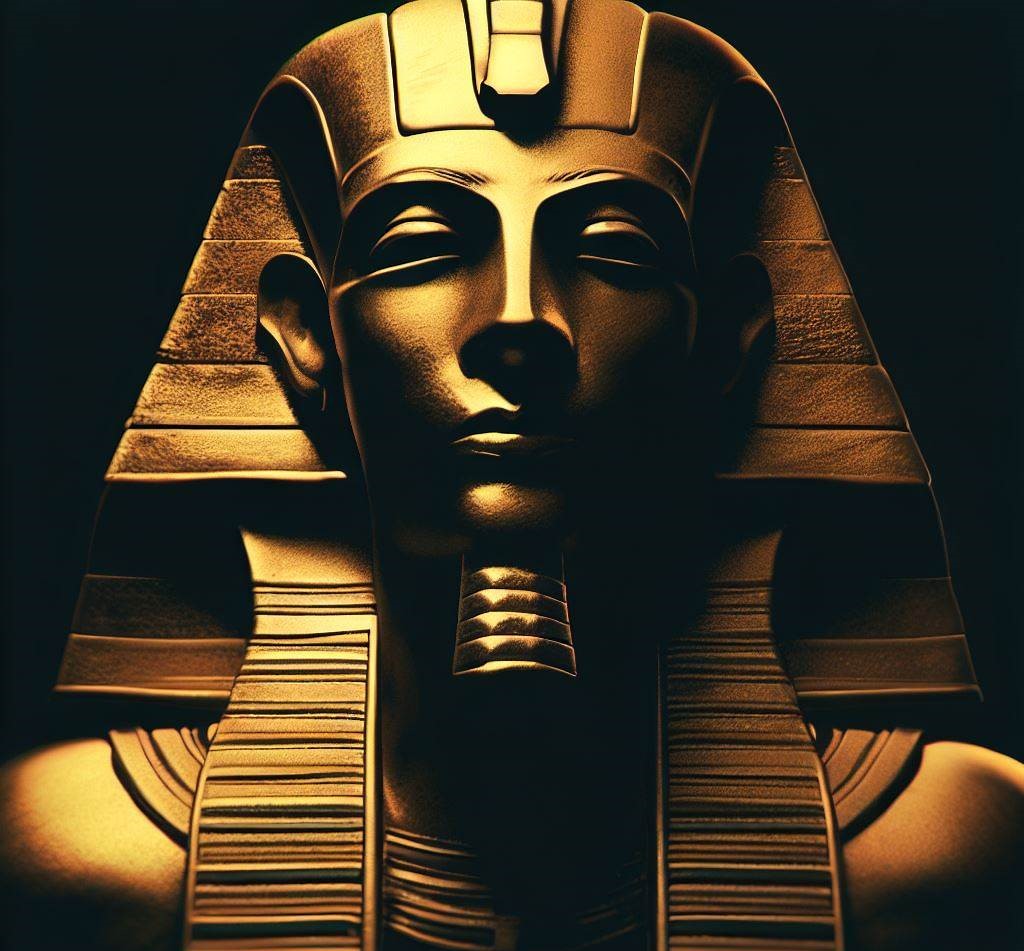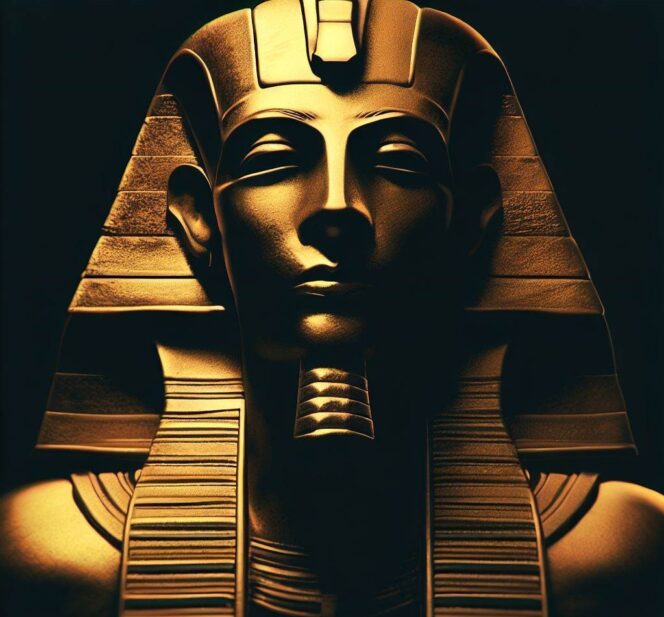Introduction
Pharaohs were the rulers of ancient Egypt who were considered to be both divine and mortal. They reigned over the land of Egypt for more than 3,000 years and 170 or more dynasties, from the early Dynastic period to the Roman conquest. The pharaohs were the mediators between the gods and the world of men, and they passed on their sacred powers and position to their successors, usually their sons. Some pharaohs distinguished themselves by their deeds, wealth, and expansion.

Meaning and Origin of the Title “Pharaoh”
The word “pharaoh” means “Great House,” a reference to the palace where the pharaoh resided. However, the specific title was not used to address the kings of Egypt by their contemporaries until the New Kingdom’s 18th Dynasty, around 1400 BC. Before that, they were called “kings” or by their royal titulary, which consisted of five names that expressed their divine and earthly attributes.
Roles and Responsibilities of the Pharaoh
As the religious leader of the Egyptians, the pharaoh was responsible for maintaining harmony and order in accordance with the will of the gods. He performed rituals and ceremonies, built temples and monuments, and offered sacrifices and gifts to the deities. He also claimed to be the son of a particular god, usually Horus, the falcon-headed god of kingship.
As the political leader of the Egyptians, the pharaoh had absolute authority over the administration, the army, the judiciary, and the economy. He made laws, waged wars, collected taxes, and oversaw all the land in Egypt, which was owned by him. He appointed officials and nobles to assist him in governing the country. He also initiated projects such as irrigation, agriculture, mining, trade, and exploration.
The History and Legacy of the Pharaohs
Many scholars believe that the first pharaoh was Narmer (also known as Menes), who unified Upper and Lower Egypt around 3100 BC. He founded the First Dynasty and established Memphis as his capital. The last native pharaoh was Nectanebo II, who was defeated by the Persians in 343 BC. After that, Egypt was ruled by foreign powers such as the Greeks, Romans, Arabs, Turks, French, and British until 1953, when it became a republic.
Some of the most famous pharaohs in history are:
- Khufu (Cheops), who built the Great Pyramid of Giza
- Hatshepsut, a female pharaoh who expanded trade and diplomacy
- Akhenaten, who introduced a monotheistic worship of the sun god Aten
- Tutankhamun (King Tut), whose tomb was discovered intact in 1922
- Ramesses II (the Great), who fought against the Hittites at the Battle of Kadesh
- Cleopatra VII, who allied with Julius Caesar and Mark Antony against Rome
Pharaohs were buried in elaborate tombs that were meant to protect their bodies and souls in the afterlife. They were mummified and surrounded by treasures, statues, paintings, texts, and other objects that reflected their life and achievements. The most famous burial site for pharaohs is the Valley of the Kings in Luxor, where 63 tombs have been found so far.
Pharaohs are among the most fascinating figures in history. They left behind a rich legacy of art, architecture, culture, religion, and science that still captivates us today.












No Sign-up. Play Directly.